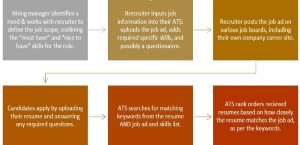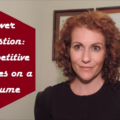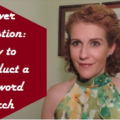This is another wonderful viewer question about how to answer “Brain Teaser” interview questions, which have become more popular in recent years. Consulting companies and high-tech companies alike are relying on the brain teaser question as a way to assess a candidate’s critical thinking skills.
It is important to note that the brain teaser question is simply an assessment tool and not a form of candidate torture. The interviewer is not expecting you to be 100% correct in your answer, rather s/he is assessing your ability to work through a complex problem. With that in mind, let’s look at how to answer these questions with an example: How many basketballs can you fit into this room?
The first step in answering such a question is to repeat the question back to the interviewer. In doing so, you are able to ensure that you understand the question. If there is a misunderstanding, the interviewer is there to clarify the question for you. Given that our example is pretty straight-forward, we can move along to step two.
The second step is to ask any clarifying questions. Think about the factors that would be important to calculating how many basketballs can fit into a room. Things like: will the room be emptied of its contents? Will the basketballs be inflated or deflated? If the interviewer is not able to answer the questions for you, then we include any assumptions we may have in our third step.
Step three is clearly stating any assumptions. In our example, we may have to assume that the room would be emptied of its contents and that the balls will be inflated. It is important to state these assumptions as this is a key indicator of both your critical thinking and communication skills.
Our fourth and final step is to calculate your results. For this step, use round numbers as it will make the calculation much easier. Remember, this isn’t about being 100% accurate. So, in our example, let’s say the room is 10ft wide x 10ft long x 10ft high, which equals 1,000 ft3. Now, let’s say that a standard basketball measures roughly 1 foot in diameter, and given that it’s a ball it would measure roughly 1 ft3. Our final assumption (which we can include in step four) is that the balls would be aligned ‘squarely’ to each other (not tasselled about). So, in doing the math: 1 ft3 ball can fit into a 1,000 ft3 room 1,000 times. So your answer is: 1,000 inflated basketballs can fit into this room when it is emptied of its contents.
I hope you found this helpful, and if you have any questions that you would like for me to answer, please feel free to leave a comment, or send me a message. If you would like personalized advice, please check out the services page for further details.
In the meantime: Happy Hunting!













